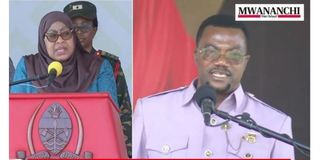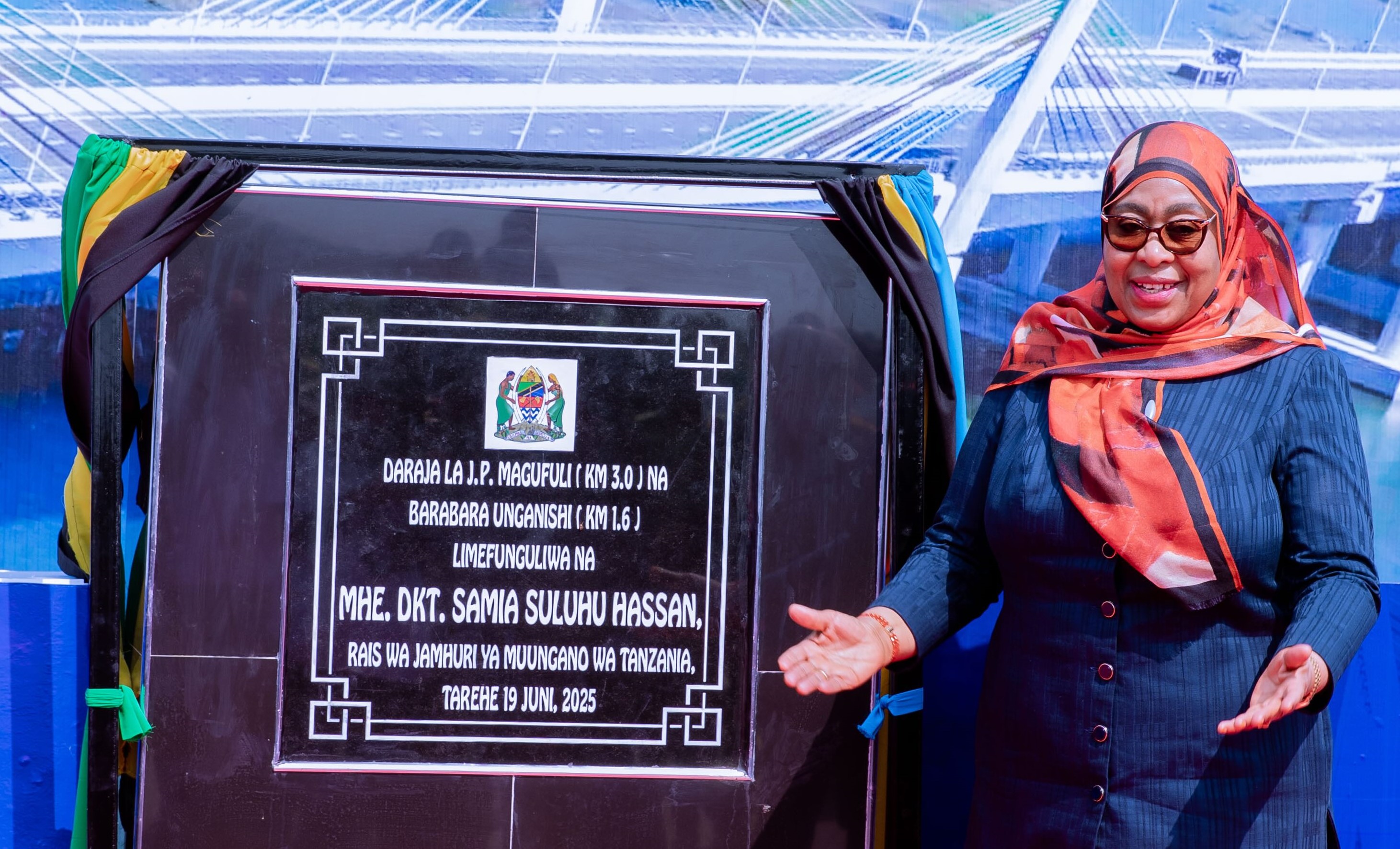Prime
Tanzanian MP's 'veiled criticism' of Samia at public rally draw sharp reactions ahead of 2025 polls

What you need to know:
- Speaking during a public rally in Meatu District, Simiyu Region over the weekend, the Kisesa MP (CCM) Luhaga Mpina told President Hassan that his constituency still awaited implementation of several development projects
Dar es Salaam. The decision by Kisesa MP Luhaga Mpina to openly state that President Samia Suluhu Hassan’s administration still had unfulfilled development commitments in his constituency has drawn varied reactions from political analysts, with some interpreting the remarks as a direct challenge to the President’s delivery record at a politically delicate time.
Speaking during a recent public rally in Meatu District, Simiyu Region, Mr Mpina told President Hassan that Kisesa still awaited implementation of several development projects.
He suggested that government funds be redirected from areas that, in his words, “do not have pending needs” to constituencies such as his.
The MP also voiced concern about the limited number of cotton buyers in the region, cautioning that dependence on a single buyer stifles competition and creates risks should the buyer face financial difficulties.
“Your Excellency, in Kisesa we still owe you,” Mr Mpina said.
“Those who say they don’t, let their funds be redirected to Kisesa—we still have many development plans.”
Although he commended the President for establishing a tax reform task force, his remarks were seen by some commentators as casting doubt on the government’s performance—particularly in his constituency—at a time when the ruling party is gearing up for the 2025 General Election.
President Hassan responded with a pointed remark, criticising the MP for using the presidential rally as a platform to raise issues already discussed in parliamentary sessions.
“Such issues have already been raised in Parliament. Bringing them up at a presidential rally is simply a tactic to gain attention,” she said.
“An MP is supposed to resolve such matters in Parliament, not cry out in public.”
She also defended her administration’s work in Kisesa, saying the constituency had experienced notable development progress.
“This shows disregard for his own constituency. Voters need leaders who deliver, not those who grandstand,” the President added.
Some analysts have pointed to the political risk of the MP’s remarks, noting that they were made in the presence of the Head of State and in a region with significant electoral importance.
A political scientist at the University of Dar es Salaam, Dr Richard Mbunda, said the timing and setting of the remarks added to their weight.
“This is a very sensitive period. The General Election is just months away. President Hassan is heading into the polls to seek her own mandate—distinct from the one she inherited after the passing of President John Magufuli,” he said.
Dr Mbunda observed that the electorate will assess President Hassan on both her independent achievements and those carried over from the previous administration.
“For an MP to undermine [the President] publicly in a strategic region like the Lake Zone, where voter numbers are significant, it is not just political indiscipline—it undermines CCM’s campaign momentum,” he opined.
Political analyst from the State University of Zanzibar (SUZA), Prof Makame Ali Ussi, said the remarks, delivered publicly and in the President’s presence, could be seen as targeting her leadership.
“In such a politically critical time, President Hassan is working to create a stable and coherent image. When a CCM MP attacks her publicly, especially at a rally, it sends conflicting signals to voters and creates confusion,” he claimed.
He added that failing to respond could weaken confidence in government delivery.
“This is why the President had to respond assertively—both to defend her record and to warn other party members.”
Political scientist at the University of Dodoma, Dr Paul Loisulie, described the MP’s remarks as “provocative and strategically misplaced.”
He said: “It would be different if this criticism came from the opposition, but coming from within CCM, and directed at the Head of State, it reveals internal fault lines at a time when unity is paramount.”
He added that CCM’s appeal lies in its perceived unity and order.
“Allowing public confrontations between members, especially in front of voters, risks painting the picture of a divided house,” he said.
A political analyst from the Open University of Tanzania, Dr Revocatus Kabobe, said the episode reflects ongoing tension between individual political ambition and party cohesion.
“Some MPs are now positioning themselves for the post-2025 landscape, but doing so by weakening their own party leader’s image is counterproductive,” he argued.
However, not all commentators viewed Mr Mpina’s remarks negatively.
A political analyst at the University of Dar es Salaam, Dr Onesmo Kyauke, said internal criticism plays a constructive role in democratic processes.
“Speaking truth to power is necessary, even though it’s uncomfortable,” Dr Kyauke said.
“It is not easy for politicians to accept internal criticism, because it might make them look weak or cost them support. But it’s essential for leaders to hear such feedback.”
Dr Kyauke added that while the rally may not have been the ideal forum, the substance of the concerns raised such as delays in development and market constraints, should not be ignored.
“Rather than dismissing Mpina entirely, it would be wise to review the substance of his claims and assess whether other constituencies share similar concerns,” he said.
Reached for comment by The Citizen on Wednesday, Mr Mpina said: “I have nothing to add or subtract from that—everything that happened, happened. The President’s speech is there, and so is mine. Everyone has their own way of believing and interpreting an issue.”




